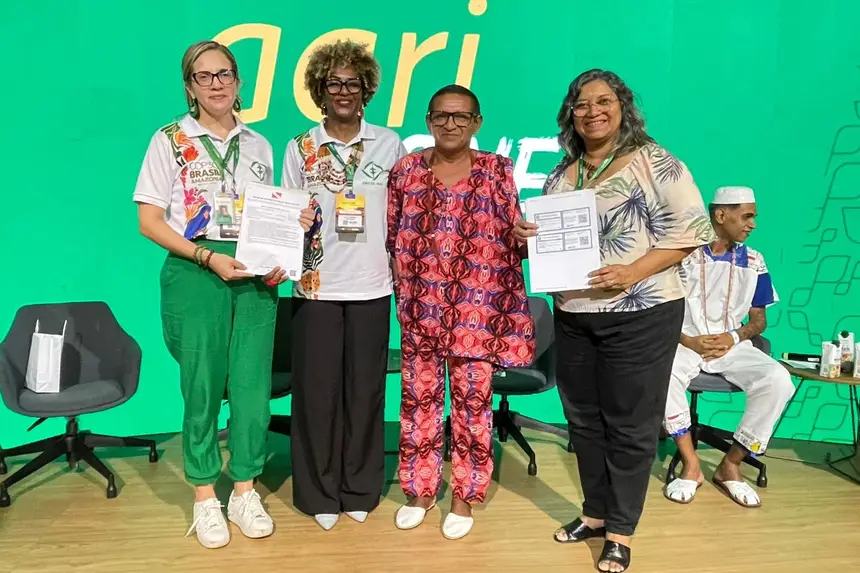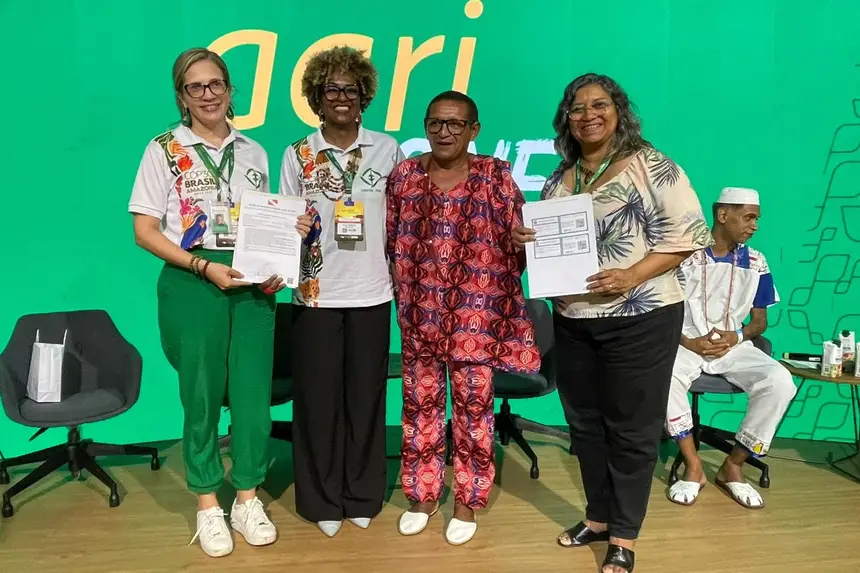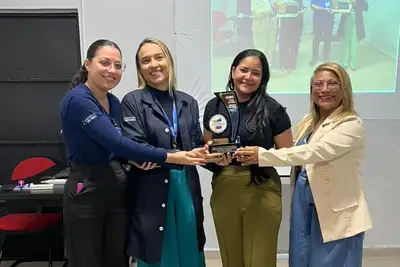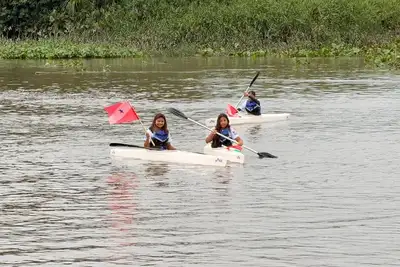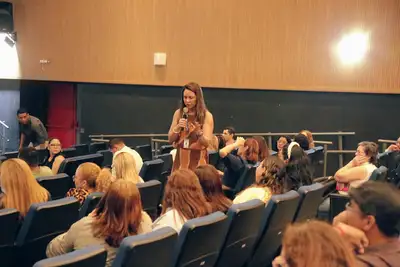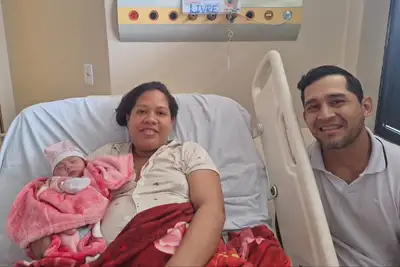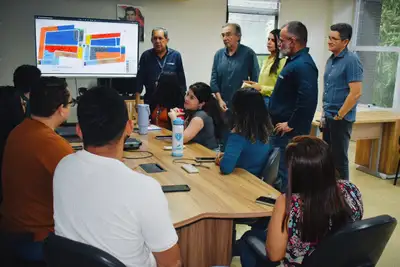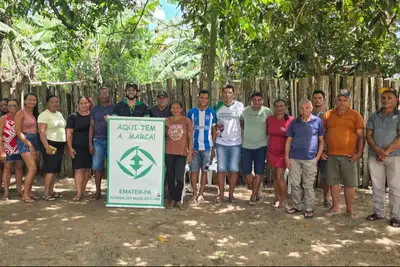Public policies for Traditional Peoples of African Matrix are highlighted in debate at COP30
Unprecedented action by Emater-Pará delivers rural documentation and reinforces public policies for Traditional Peoples of African Matrix during COP30
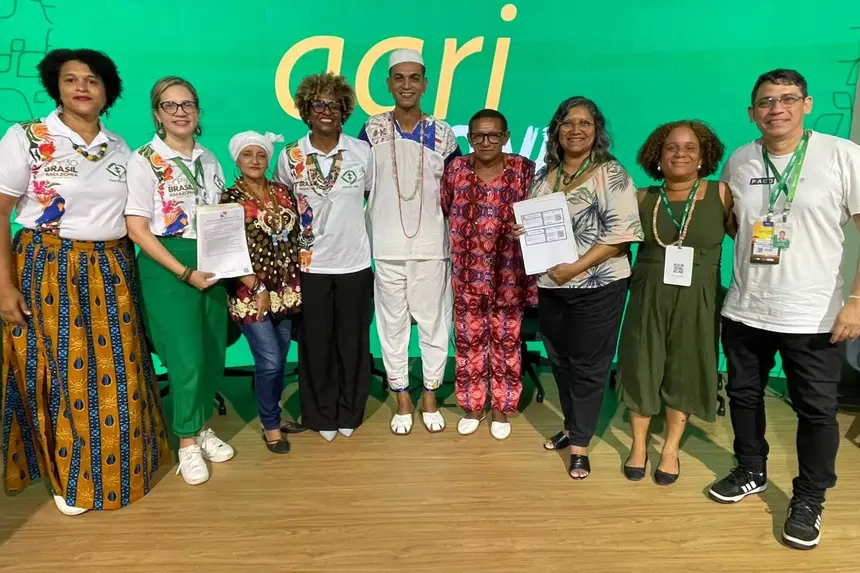
The Agri Talks Arena, in AgriZone, located at the headquarters of the Brazilian Agricultural Research Corporation (Embrapa) of Eastern Amazon, was the stage for a debate on public policies for Traditional Peoples of African Matrix (Potma) this Sunday (16), during the programming of the United Nations Climate Change Conference (COP30) in Belém.
The government of Pará, through the Technical Assistance and Rural Extension Company of the State of Pará, took the opportunity to deliver an Environmental Rural Registry (CAR) and a Family Agriculture Registry (CAF) to one of the beneficiaries served by the public extension company.

According to the priest and family farmer from Marituba, in the Metropolitan Region of Belém, Cristiano dos Santos, the document opens doors for an entire community to be collectively benefited in a comprehensive and fair manner.
“For me, it is very gratifying to receive this documentation during COP30, in Emater's programming at the conference, because it is very representative for our community. We always had difficulties accessing public policies like this. With the documents, we can now think about projects to improve our production and in my terreiro. It is a great happiness for me,” he stated.

In addition to being an unprecedented initiative throughout the country and serving as an example for other public extension companies, the program is part of the Policy of Interest in Diffuse and Collective Rights, which was established through Ordinance No. 0456/2023, dated 07/05/2023, and implemented on 07/10/2023.
In it, policies of equity in gender, generation, race, and ethnicity relations were assigned priority status for the company to implement general guidelines, as well as providing technical assistance and rural extension services to indigenous peoples, quilombola communities, and women, among others.
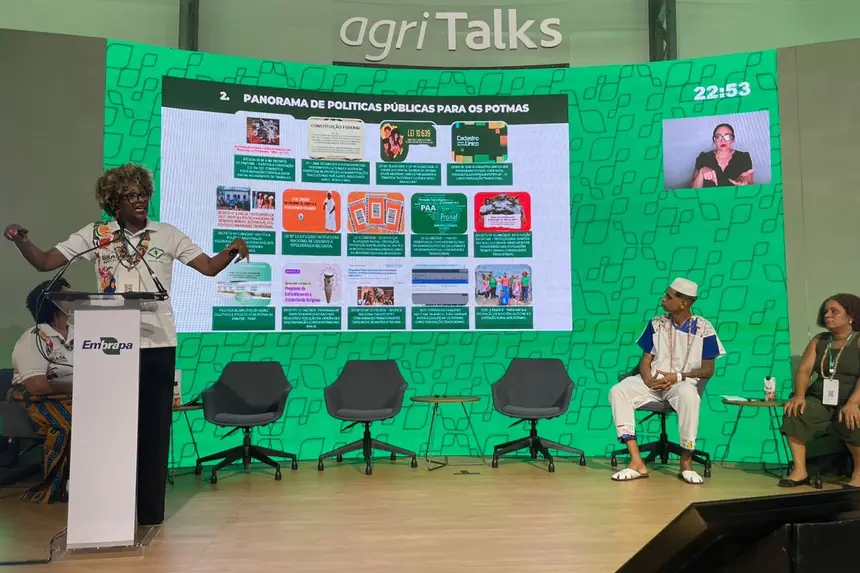
The person in charge of the Emater Project, the zootechnician Swasilanne Fonseca, head of the Programs and Projects Nucleus (NPP), emphasized the importance of inclusive initiatives like this, established by Emater-Pará.
“It is a pioneering policy among public extension companies in Brazil, and the most important for us was the evaluation we are providing to them. Initially, we provide this service in terreiros in seven municipalities, but we want to expand it to other regions, bringing more access to public policies. We currently have 39 Potma beneficiaries, and our idea is to further expand our service to these groups,” she highlighted.
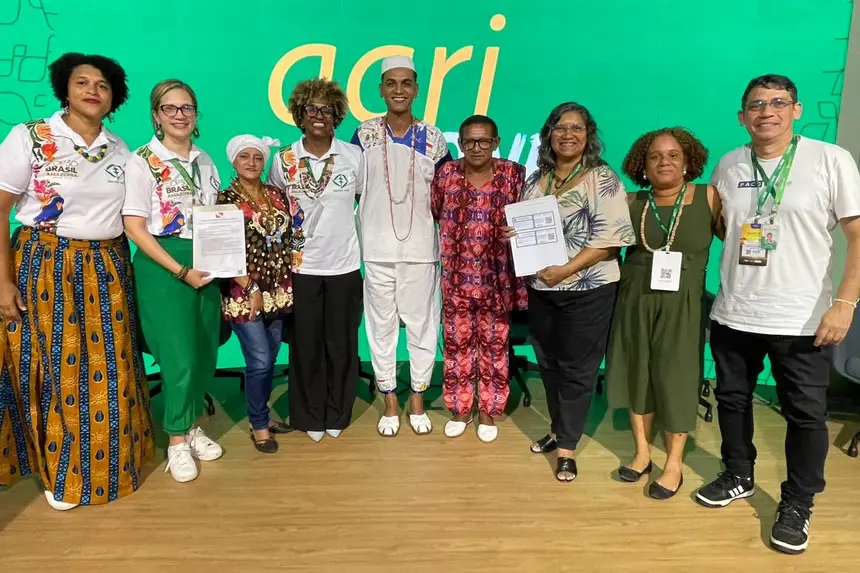
The environmental engineer and Operations Coordinator (Coper) of Emater-Pará, Camila Salim, emphasized that an agenda of this magnitude within COP30 demonstrates the importance of the work of rural extensionists in the field.
“Emater-Pará has the policy of diffuse and collective rights, which brings our extensionists to all audiences in our state, to serve and provide public policies free of charge, especially for these specific groups, generating more dignity, inclusively and without any restrictions, expanding our services in the field,” she concluded.


